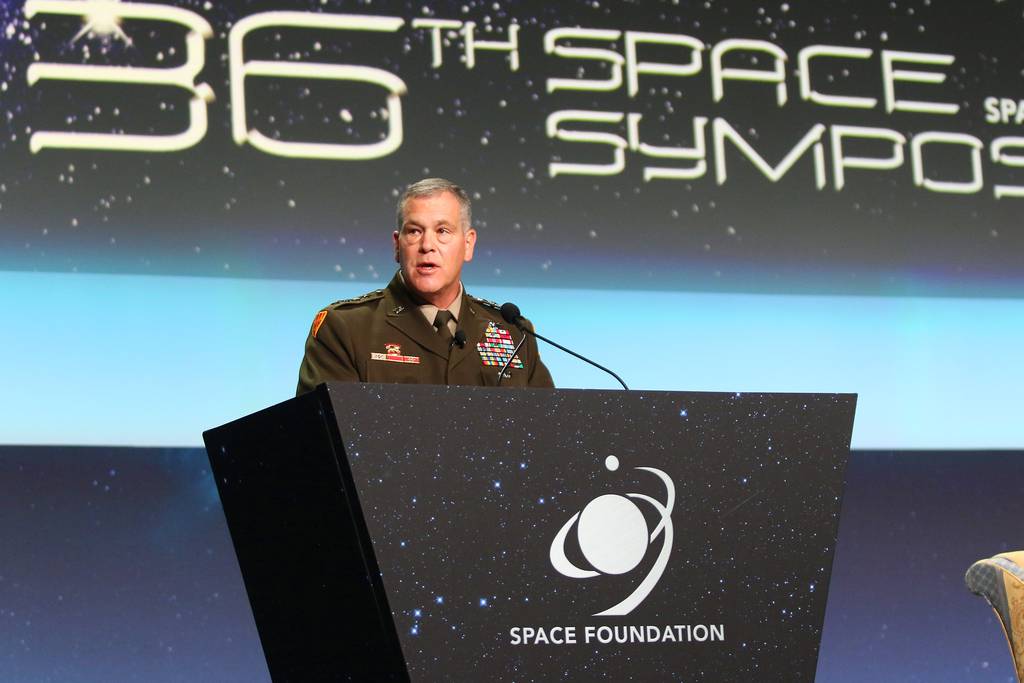WASHINGTON — More than four years after being reinstated, U.S. Space Command is now fully operational.
The milestone, which the command announced Dec. 15, is essentially a recognition that SPACECOM meets the criteria to execute the full range of its mission to deliver a range of space capabilities to military users and combatant commanders.
“Since its establishment in 2019, USSPACECOM has been singularly focused on delivering exquisite capability to the joint force to deter conflict, defend our vital interests, and, if necessary, defeat aggression,” Commander Gen. James Dickinson said in a statement. “Thanks to the disciplined initiative of our people and the support of our joint, combined and partnered team, I can confidently say we have reached full operational capability.”
The criterial for full operations includes things like demonstrating its ability to meet operational responsibilities, developing a skilled workforce and having the infrastructure and processes in place to support its work.
The command achieved initial operations in 2021 and Dickinson has since said that meeting the requirements to be fully functioning required the organization to have a permanent headquarters. Checking that box has been a long, contentious process, however, involving multiple reviews from government watchdog agencies and debates between states vying to host the command — namely, Colorado and Alabama.
As he was leaving office in 2021, Trump announced Huntsville, Ala. as his choice to host the command’s headquarters. That decision was met with immediate pushback from Colorado lawmakers, who called the Air Force-led process “fundamentally flawed.”
Rep. Doug Lamborn, R-Colo., requested a Government Accountability Office review of the decision and a DoD inspector general investigation. Both agencies concluded in 2022 that while the basing process lacked transparency and credibility, the Air Force followed the law when choosing Huntsville.
Meanwhile, the Defense Department initiated a new selection process. And despite the conclusions from GAO and the inspector general’s office, the Biden administration announced July 31 that Space Command would remain in Colorado Springs, reversing Trump’s decision.
In turn, House Armed Services Chairman Mike Rogers, a Republican from Alabama, quickly launch a congressional investigation. He threatened to subpoena DoD officials for documentation of the Air Force’s selection process and called for additional reviews from GAO and the inspector general.
The Fiscal 2024 National Defense Authorization Act, which Congress passed this week, includes a provision that stalls funding to construct the Colorado Springs headquarters until those agencies conclude their reviews next July.
Lamborn praised Space Command’s full operational capability milestone in a Dec. 15 statement, calling it “the pinnacle” of years of hard work by DoD space leaders.
“This designation conveys that USSPACECOM is now fully manned and operated by an adequately trained, equipped, and supported military force at Peterson Space Force Base in Colorado Springs, Colorado,” he said.
Courtney Albon is C4ISRNET’s space and emerging technology reporter. She has covered the U.S. military since 2012, with a focus on the Air Force and Space Force. She has reported on some of the Defense Department’s most significant acquisition, budget and policy challenges.








